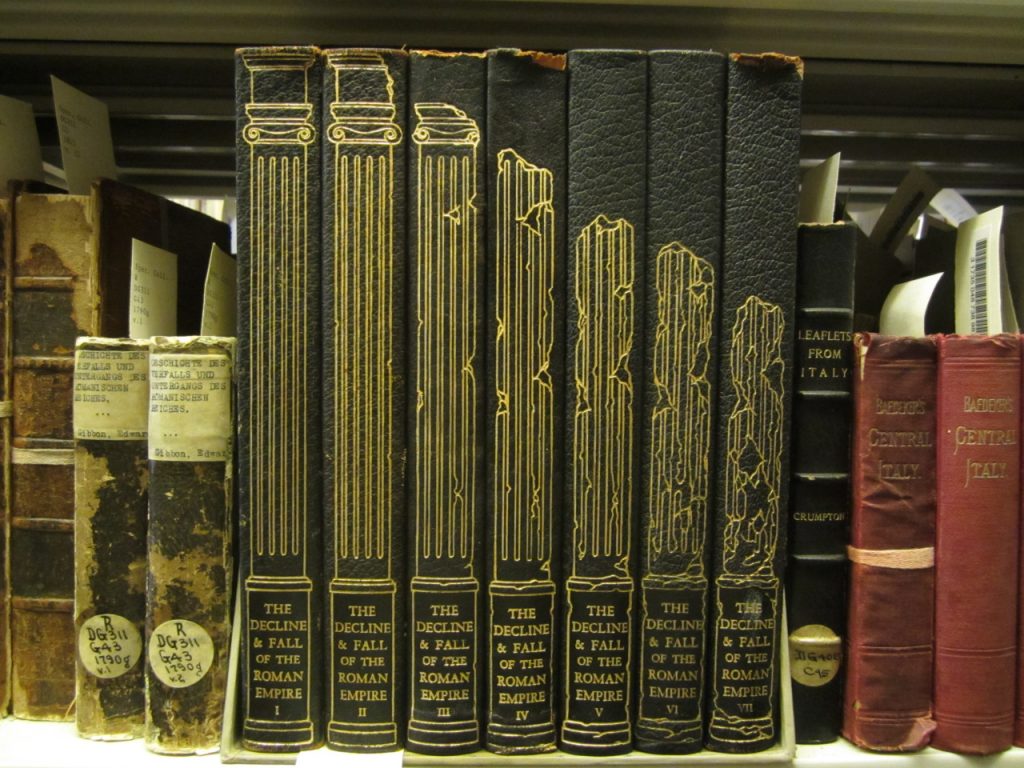In 1929, the book publisher George Macy founded The Limited Editions Club (LEC), an imprint tasked with publishing finely illustrated limited editions of classic books. In the years to come, Macy worked with artists like Matisse and Picasso, and photographers like Edward Weston, to produce books with artistic illustrations on their inner pages. And sometimes The Limited Editions Club even turned its design focus to other parts of the book. Take for example this 1946 edition of Edward Gibbon’s The Decline and Fall of the Roman Empire and its pretty amazing spine design.
Created by Clarence P. Hornung, the design captures the essence of Gibbon’s classic, showing Roman pillars progressively crumbling as your eyes move from Volume 1 to Volume 7. George Macy later called the collection, which also features illustrations by the great 18th-century printmaker Giovanni Battista Piranesi, “the most herculean labor of our career.”
Find more information about this 1946 edition here. Or, if you have deep pockets, purchase a copy here.
Note: an earlier version of this post appeared on our site in June 2015.
If you would like to sign up for Open Culture’s free email newsletter, please find it here. It’s a great way to see our new posts, all bundled in one email, each day.
If you would like to support the mission of Open Culture, consider making a donation to our site. It’s hard to rely 100% on ads, and your contributions will help us continue providing the best free cultural and educational materials to learners everywhere. You can contribute through PayPal, Patreon, and Venmo (@openculture). Thanks!
Related Content:
700 Free eBooks for iPad, Kindle & Other Devices
630 Free Audio Books: Download Great Books for Free
The History of Rome in 179 Podcasts
Free Courses in Ancient History, Literature & Philosophy
Rome Reborn: Take a Virtual Tour Through Ancient Rome, 320 C.E.



Leave a Reply